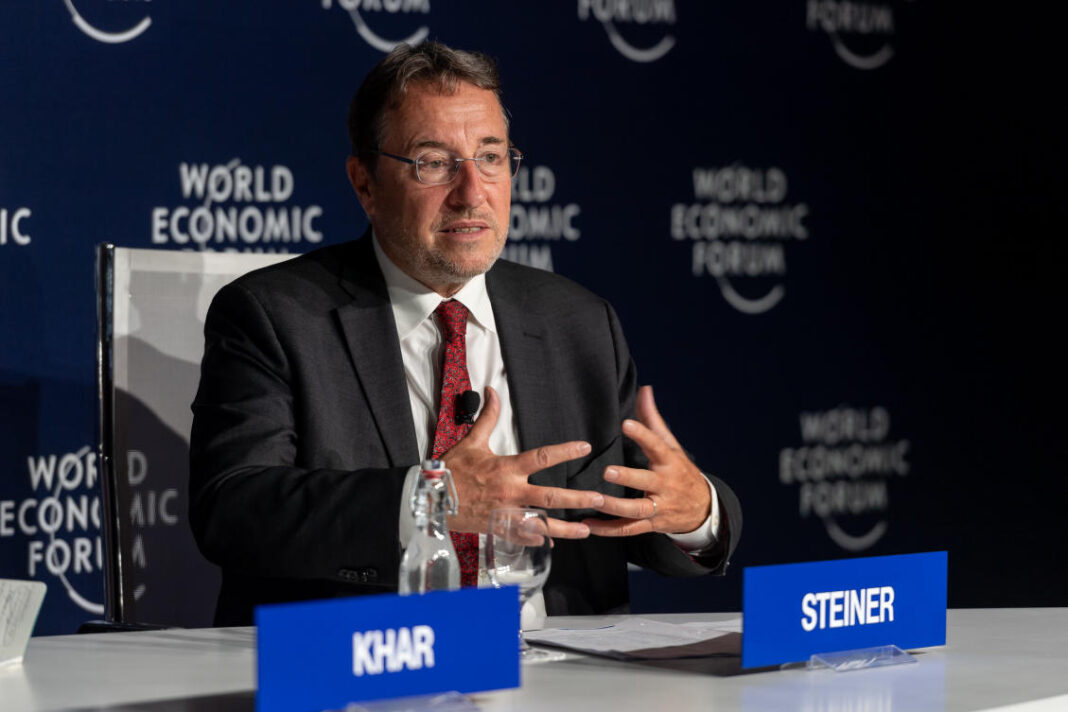LONDON: The UN is clear about the human rights it expects authorities in Afghanistan to uphold, one of which is the right of girls to education, an official from the organization said on Monday.
Speaking at the World Economic Forum in Davos, Achim Steiner, the administrator of the UN Development Program, said that girls in the country should be free to complete their education and pursue careers.
The UN “is unequivocal about the fundamental human rights that we expect a country like Afghanistan to uphold and to respect and that includes … the right of girls to attend educational institutions,” he said. “And not just primary school but also secondary school, and their ability to pursue careers and to go to university.
“It is without doubt a grave misjudgment that up to now the Taliban have not fulfilled the commitment that they have repeatedly made to their own public, but also to the international community, that they would reopen the secondary schools” to girls, Steiner added.
The Taliban has barred girls from attending school after the sixth grade, reversing previous promises made by Taliban officials when they took control of the country last year that girls of all ages would be allowed to continue their education.
The group has placed other strict restrictions on females, including ordering all women to wear clothing in public that covers them head to toe with only their eyes visible. They also issued a decree stating that women should leave their homes only when necessary and that male relatives would face punishment for any violations of the women’s dress code, starting with a summons and escalating to court hearings and jail time.
Steiner said the first thing that must be reestablished in the country is “a rule of law in the sense of fundamental rights.” He added: “I think this is perhaps the greatest single litmus test that the international community holds up to the Taliban — and I think quite rightly.”
However, Steiner warned that the most urgent need in Afghanistan is action to save its economy from complete collapse.
“We cannot abandon 40 million Afghans simply on the principle of moral outrage,” he said. “That is why the UN stepped back into Afghanistan and became the backbone of an international community’s presence.
“We are there because we see the desperation of the Afghan people. And while the international community finds a way with the Taliban to conclude a process of political rapprochement, we are trying to essentially intervene in an economy that has to keep people alive.”
The Taliban’s takeover of Afghanistan nine months ago following the withdrawal of US troops triggered an economic crisis. Underpinning this was the decision of the Biden administration to freeze about $9.5 billion deposited by the Afghan central bank in American financial institutions.
President Joe Biden has signed an order to release $7 billion of these frozen assets but only half will be released for humanitarian aid to Afghanistan. The remainder will go to the families of Sept. 11 victims.
UN unequivocal about right of Afghan girls to education, World Economic Forum told




